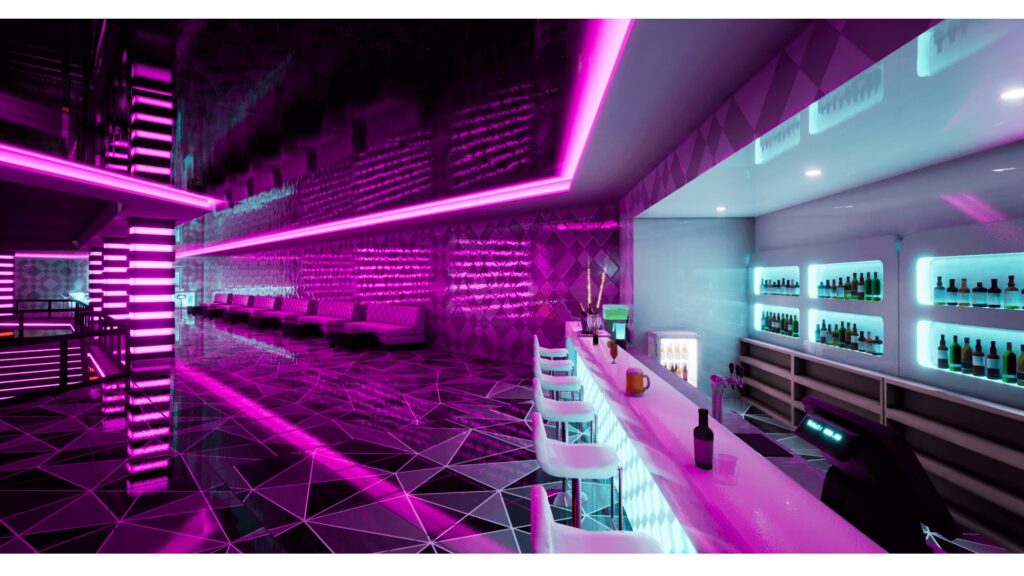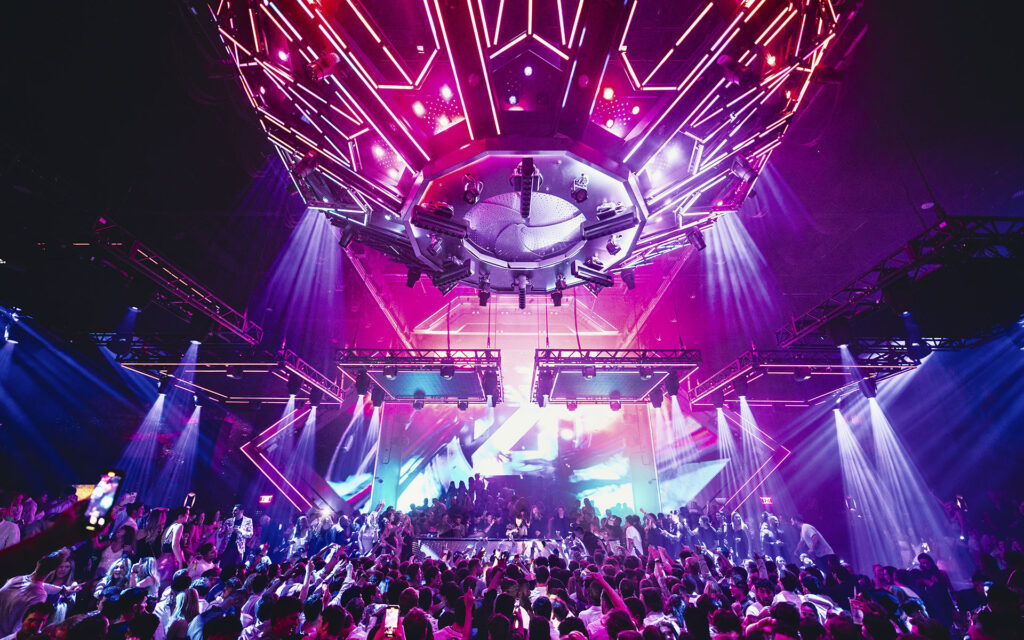03 May, 2022
How to Start A Night Club Business – Part 1
The characteristics of this space will largely be defined by the type of crowd the owner is able to attract based on the target market and the owner’s tastes. The club can offer a certain type of music, such as those that play only country western music or their niche could offer different services, like a gentleman’s club. Nightclubs can have live music, feature DJ music, or both. Contemporary DJs have become performance stars now as well. The most important feature of any successful nightclub is the ability to attract enough paying customers to pay the rent and occasionally “pack the place,” to make tremendous profits.
Start a nightclub by following these 10 steps:
- Plan your Nightclub
- Form your Nightclub into a Legal Entity
- Register your Nightclub for Taxes
- Open a Business Bank Account & Credit Card
- Set up Accounting for your Nightclub
- Get the Necessary Permits & Licenses for your Nightclub
- Get Nightclub Insurance
- Define your Nightclub Brand
- Create your Nightclub Website
- Set up your Business Phone System
You have found the perfect business idea, and now you are ready to take the next step. There is more to starting a business than just registering it with the state. We have put together this simple guide to starting your nightclub. These steps will ensure that your new business is well planned out, registered properly and legally compliant.

STEP 1: Plan your business
A clear plan is essential for success as an entrepreneur. It will help you map out the specifics of your business and discover some unknowns. A few important topics to consider are:
- What are the startup and ongoing costs?
- Who is your target market?
- How much can you charge customers?
- What will you name your business?
Luckily we have done a lot of this research for you.
What are the costs involved in opening a nightclub?
If you are starting on a limited budget the best way to get going is to make a deal with an existing nightclub as a “promoter” that gives you a certain night per month (or per week if it gets popular), to hold a special event at the club. The club may charge a minimum bar cost that you must pay for the night, so you can lose money if nobody shows up, but this is a modest way to see if you can attract a crowd for your party ideas.
If you cannot attract a crowd for one night at an existing club, you may need to rethink your ability to be in this business.
The second best way is to buy an existing club that is already successful. For this opportunity you will pay at least 10 times the annual profits to buy the club, not counting the costs of the real estate if it is included.
If you are going to start a new club the costs vary widely depending on where it is. A modest neighborhood club could be around $100,000 for the fixtures, supplies, and equipment needed to get started. Other clubs, like the biggest ones in New York, cost tens of millions of dollars to open.
The basic equipment needed is:
- Refrigerator(s) – $1,000 stand-alone style to $10,000 walk-in style
- Freezer(s) – $2,000 stand-alone style to $20,000 walk-in style
- Bottle Cooler(s) – $1,000 each
- Bar Cooler(s) – $1,5000 each
- Under-bar sink(s) – $900 each
- Draft beer equipment – $500 for each station
- Soda making equipment – $300 for each pouring station
- Ice Machine(s) – $2,500 each
- Glass racks and speed rails – $200 each
- Glass washing machine(s) – $1,400 each
- Bar Blender(s) – $250 each
- Glassware in various sizes – $25 per 24 glasses
- Bar ($4,000 to $10,000)
- Bar stools – $75 each
- Bar lighting – $1,000
- Bar supplies – Utensils, Condiments etc. $300
- Soda, beer, and liquor stock inventory – $10,000 to $50,000 (replaced daily as used)

What are the ongoing expenses for a nightclub?
The ongoing expenses are the labor costs, food costs (if food is offered), beverage costs, rent, utilities, marketing, and insurance.
Who is the target market?
The best customers are the ones who have lots of money and do not mind spending it on a wild night out. A handful of these big spenders can make a club very profitable. Attracting famous people is very good because they attract others.
How does a nightclub make money?
Selling drinks, possibly food, charging for admission, and, where possible, for special seating and/or special services offered to the customers. These special services can be anything from “lap dances” at strip clubs to bottle service (customers buy a full bottle of liquor to be exclusively served to them for a special price) at VIP tables in the best spots right next to the entertainment.
How much can you charge customers?
Drinks sell at the lowest prices of $1 per glass for cheap beer or a shot of cheap liquor up to hundreds of dollars for a bottle of fine wine, expensive champagne, and “top-shelf” alcohol. In the main American cities, the average drink sale is $2.50 for a beer and $5.00 for liquor drinks. Blended drinks sell for around $10.00 each.
The key is to manage the “PC,” which stand for the percentage of cost. The lower the PC the more profits for the club. The typical PCs according to nightclub.com are, 17% for liquor, 23 to 25% for bottled beer, 21% to 22% for draft beer, 30% for wine, and 6% to 8% for sodas. The average PC is 21%. Based on the average, if the customer pays $3 for a drink the PC of 21% means that the contents to make that drink must cost $0.63 or less for the operations of the nightclub to normally make a profit.
The cover charge to enter a club can be a modest $5 to $10 per person with this money used to help pay the bands and/or the DJ. It can be much higher for special clubs like strip clubs that charge a $25+ entry fee and even higher for special live music/performance events, which sell out due to the limited seating/capacity.
How much profit can a nightclub make?
A typical smaller club will make its owner $1,000 to $5,000 per week ($50,000 to $250,000 per year). A large metropolitan club can make $50,000 profit in a single night.
How can you make your business more profitable?
Make it more popular and host a variety of events as well as get into some of the sideline businesses that are club related, such as:
- Comedy Night: Hosting comedian(s) is an additional source of revenue if you charge for tickets.
- Live Music: Getting famous bands to play in smaller venues and charge premium tickets prices to see them in an intimate setting is a great way to make money.
- Open Mike/ Karaoke Night – Allow the customers to provide the entertainment.
- Private Parties – Rent the nightclub out or part of it for private parties.
- Record Audio and Video of the Bands Performance – Offer live recording services to bands that perform at the club.
- Live Radio Shows – Associate with a local radio station and produce a live radio show.
What will you name your business?
Choosing the right name is important and challenging. If you don’t already have a name in mind, visit our How to Name a Business guide or get help brainstorming a name with our Nightclub Name Generator
If you operate a sole proprietorship, you might want to operate under a business name other than your own name.
When registering a business name, we recommend researching your business name by checking:
- Your state’s business records
- Federal and state trademark records
- Social media platforms
- Web domain availability.
It’s very important to secure your domain name before someone else does.
